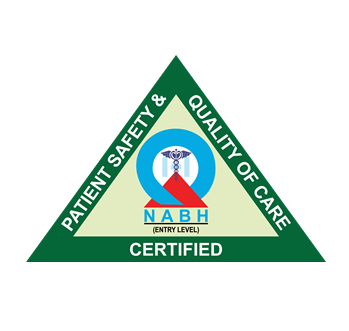
5 Types of Headaches and When You Should See a Doctor
Among the various simple yet serious health issues, headaches seem to be the most common.” Migraines, tension headaches, or sinus headaches; the ache might be mild but can be persistent, severe, and could hint at something more serious. Striving to identify the right category of the ache and the most suitable time to consult a doctor can be critical, especially when balancing the daily routine.
Similar to various regions in the city, Bangalore and the surrounding regions are teeming with people who professionally suffer from head stress but could avail a professionally licensed cure. Due to specialist availability, Bangalore’s headache treatments are sharper and more timely than specific, personal and advanced.
What causes headaches?
Head tension or stress is pain in the head, scalp or neck. A headache could be caused by various factors, as simple as muscle tension to nerve pain, a change in certain blood vessels or certain lifestyle factors. A hangover could be a sign of fatigue or dehydration, while a headache might be triggered by extreme pain and may need much attention.
5 Different Types of Headaches
- Tension Headaches
This type of headache affects most people, and it is usually caused by stress, exhaustion, or physical strain.
Typical Symptoms:
- Mild to moderate pain or pressure around the head’s middle sections, for example, the back and the forehead.
- A feeling of pressure around the head, like a tight band is hugging it.
- The pain is usually felt on both sides.
- No nausea or light sensitivity.
Diagnosis and Treatment:
Most doctors diagnose tension headaches by speaking with the patient and evaluating their medical history. In most cases, imaging is not required unless the regular pattern changes. The treatment for tension headaches usually includes a combination of rest, OTC drugs, neck stretches, pain relief neck exercises and stress relief techniques.
- Migraine Headaches
A migraine is a more serious headache that can last for a few hours and, in certain cases, like with a severe migraine, can last for three days.
Typical Symptoms:
- Throbbing pain or pulsing in certain areas, mostly on one side.
- Feeling nauseous or vomiting
- Overly sensitive to light, noises, and even smells.
- Some people have a special type of vision problem before a headache starts, which is called “aura”.
Diagnosis and Treatment:
An information neurologist is careful to take note of the migraine history regarding intensity, frequency and any accompanying symptoms. Keeping a headache diary is often recommended, and medications to control and prevent migraines are often provided along with lifestyle changes and dietary recommendations. Headaches treatment in Bangalore is always holistic focusing on the root.
- Cluster Headache
Although cluster headaches are rare, they are incredibly excruciating. Cluster headaches occur in cycles, thus the name.
Typical Symptoms:
- Rare, burning sensation, stinging pain is felt around/beside one eye.
- Watery eye or congestion on the same side as the pain.
- Pain usually occurs around the same time each day.
- Pain can wake the person from sleep.
Diagnosis & Treatment:
These are diagnosed using pattern and severity. With other possible causes, other diagnosed issues, such as severity with an MRI scan, may be used. Treatment of these headaches includes oxygen therapy, triptan medications, and other preventive methods. If headaches are frequent and unresponsive, nerve stimulation therapy may be used.
- Sinus Headache
These occur with inflammation or infection in the cavities of the nose.
Typical Symptoms:
- Pain may be deep and constant around the forehead, cheeks, or around the nose.
- Pain may get worse with other movements or bending down.
- The pain may be accompanied with nasal congestion, fever, or swelling of the face.
Diagnosis & Treatment:
These may be diagnosed using nasal endoscopy or CT scan for sinusitis. Treatment includes decongestants, nasal sprays, and steam inhalation. If other sinus headaches are persistent, they may be referred to an ENT or allergy specialist.
- Rebound headache
These headaches are tied to the use of medications used to treat headaches.
Common Symptoms:
- Daily or nearly daily headaches.
- Often begins right after waking up.
- Improved by medication, but worsens after cessation sustained medication.
Diagnosis & Treatment:
Rebound headaches are often diagnosed based on medication history and usage. Treatment primarily consists of supervised withdrawal on the overused medication and the initiation of preventive therapy. Long-term therapy may also include stress management and optimisation of sleep.
When Should You See a Doctor?
Intermittent headaches are quite common and usually a benign, self-limiting condition. However, the following should not be overlooked:
- Regularly occurring headaches (greater than 2 times a week).
- Sudden, severe pain like a thunderclap.
- Interference of headaches with sleep or activities of daily living.
- Changes in vision, confusion, slurred speech, weakness.
- Change in headache pattern.
- Post-traumatic headaches (following head injury).
In certain circumstances, the presence of recurrent headaches could indicate a much more severe condition such as a brain tumor, stroke, or other neurological condition needing more in-depth evaluation and timely intervention.
How Do Doctors Find Out What Kind of Headache You Have?
If you have headaches and visit the doctor, they will gather your medical history, do a physical exam, and do a neurological exam. They might also do some of the following tests:
- MRI or CT Scan – these scans will help the doctor check for any tumors, bleeding, or infections in the sinuses.
- Blood Tests – these tests help the doctor check for any infections or inflammation in the body.
- Eye Exam – This exam will help check for any high pressure in the eye or low vision which could cause headaches.
- Hadache Diary – This will help define and examine the various triggers and patterns of the headaches over a period of time.
At East Point Hospital, they also have physiotherapy, ENT care, psychological support, medication review, and multidisciplinary diagnostic services.
Advanced Headache Treatment in Bangalore
In treating headaches, the use of pain management techniques has become more specific, given the advancements in the field of neurology. Treatment may include:
- Medication – Pain relievers, triptans, beta-blockers, anticonvulsants, or even anitdepressants.
- Botox Injections – For those with chronic migraines who do not respond to other medications.
- Nerve Block Injections – Medication to halt the send of pain signals to the brain.
- Lifestyle Adjustments – Sleep hygiene, eating granola over sugary foods, hydration, and stress relief.
- Neurostimulation Devices – For the more difficult and stubborn cases.
At East Point Hospital, patients gain the benefit of both conventional and advanced headache treatments, enabling the management of both simple and complicated headache cases.
Frequently Asked Questions (FAQs)
Q1. Can movement disorders and headaches be connected?
Yes. Some conditions such as Parkinson’s or brain tumors may coexist with both headaches and movement disorders. Managing such symptoms allows the doctor to manage the right disorder at the right time.
Q2. Are there new treatments for patients suffering from headaches and other movement disorders?
Yes. There are new treatments like Deep Brain Stimulation (DBS) and Stereotactic Radiosurgery for not only for movement disorders like tremor or dystonia, but also for headaches of a neurological origin. These are precise, minimally invasive techniques.
Q3. At which point should a headache be classified as a neurological issue?
The presence of seizures, weakness, memory problems, personality changes, or vision problems in conjunction with headaches may suggest a more complex problem with the brain or nerves. Such cases should always be assessed by a neurologist.
While headaches can be very common, they should never be ignored, especially if they disrupt the person’s life or are accompanied by other troubling symptoms. Understanding the nature of the headache, documenting the symptoms, and receiving prompt medical attention can make all the difference.
If you or a family member are suffering from persistent or debilitating headaches, getting headaches treatment in Bangalore from a well-known and all-inclusive hospital like the East Point Hospital can improve the patient’s life significantly and restore their lifestyle.


